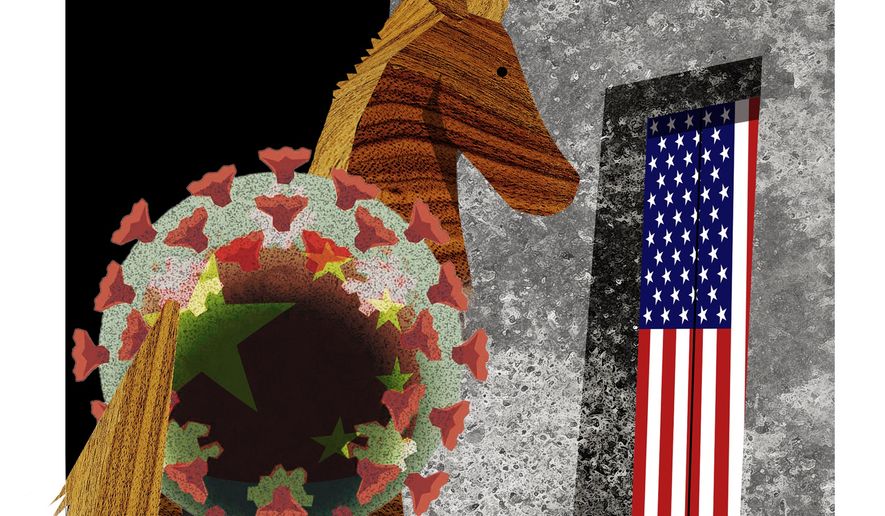OPINION:
Last June, members of the World Trade Organization (WTO) agreed to suspend intellectual property (IP) rights on COVID-19 vaccines. The deal was done once China agreed not to “avail itself” of the waiver. China’s asking price for this pledge? The deletion of a single sentence in a footnote.
Mere minutiae, right? Wrong. This edit could end up compromising U.S. national security.
The original text of the waiver said nothing about which countries would be eligible to use this “flexibility.” Later drafts addressed the issue in a footnote. The footnote stayed bracketed until May, meaning that countries could not agree on its wording. The first sentence said “all developing country Members are eligible Members.” The second sentence excluded those “who exported more than 10 percent of world exports of COVID-19 vaccine….”
China strongly objected to the second sentence. In exchange for dropping it, Beijing offered a deal: “if our concern on the footnote is properly addressed, we will not seek to use the flexibility provided for by this decision.” This was enough for the Biden administration. The deal was done.
China’s pledge gave supporters of the waiver some political cover. But things weren’t quite as they seemed. The pledge was for vaccines, the focus on the waiver’s first round. A second round was already in the works, the aim of which is to consider expanding the waiver to therapeutics and diagnostics. This is crucial: China never vowed that it would not go on to use an expanded waiver.
Congress has reservations about the waiver, never mind an expanded one. First, there’s the economics of it. Just last week, for example, 14 House Democrats wrote to U.S. Trade Representative Katherine Tai that an expanded waiver would likely have “unintended adverse consequences, such as hampering American manufacturing and shifting jobs to foreign countries.”
The waiver has also been identified as a national security risk. For example, in H.R. 7430, Protecting American Innovation Act, much like in S. 1683, Preventing Foreign Attempts to Erode Healthcare Innovation Act, the fear is that China intends to make COVID-19 technologies the centerpiece of a strategy to undermine the economic competitiveness of the United States and its allies. According to the Federal Bureau of Investigation and Britain’s MI5, China’s strategy is already in full motion.
Not surprisingly, the Congressional Research Service points out that “some policymakers and stakeholders remain concerned about the risk of theft by China of U.S. COVID-19-related technologies.”
This is where the footnote comes in. If eligibility had been pegged to “10 percent of world exports,” it would have made it difficult for China to import vaccines from third countries, which the waiver can’t prevent. More importantly, if the waiver is expanded, the peg will impair China’s exports of therapeutics and diagnostics more generally. In sum, Beijing calculated that it had nothing to lose from its deal on the footnote, and everything to gain.
Why would the United States risk its national security over the waiver? After all, the waiver will not help fight COVID-19 at home or abroad. In a communication to the WTO, for example, Mexico and Switzerland explain that the “[a]vailable information shows that no shortage of therapeutics exists.” On diagnostics, they note “there is a high level of product surplus to order,” and that the challenges that remain “are not IP-related.” Accordingly, they conclude that “no adjustments to the IP system seem to be required.”
Echoing this same sentiment, 10 senators recently wrote Ambassador Tai, complaining that “little data or other evidence” has been given to show the need for the waiver, and that its expansion “could face similar issues.” As the Protecting American Innovation Act called for, the waiver needs to be evaluated in terms of its implications “for jobs, economic growth, public health, and national security in the United States.” The simple reality is that the waiver—especially an expanded one—is a threat to U.S. national security precisely because it will impair jobs and economic growth, while doing nothing for public health.
• Marc L. Busch is the Karl F. Landegger Professor of International Business Diplomacy at the Walsh School of Foreign Service, Georgetown University. Follow him on Twitter @marclbusch.




Please read our comment policy before commenting.